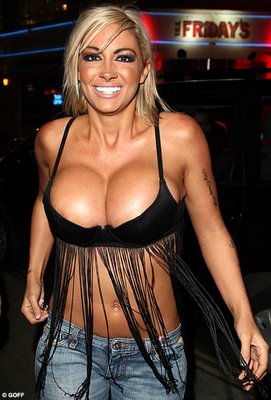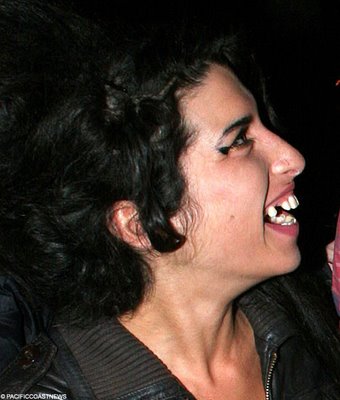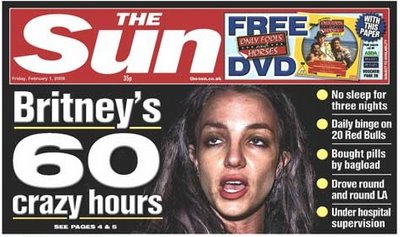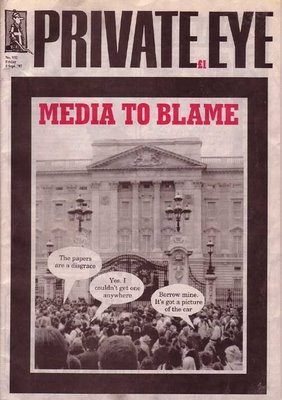The political wife as a commodity.
Looking at it from the vantage point of early 2010, having already been treated to a prime minister almost shedding tears during a "personal" interview with Piers Morgan, with helpful juxtaposed cuts to his wife who most certainly was crying, and now to the "first" casual, cosy talk between Glam Sam Cam, as the Tories seem to wish us to see her, and Trevor McDonald, it doesn't really seem so ludicrous. Admittedly, Cameron isn't exactly offering us the opportunity to go further than just a informative chat with her, and Brown was presumably strong-armed by the spin doctors into the Morgan interview, although Sarah Brown has previously appeared at the party conferences almost as ballast, but it is treating the wives almost as a commodity, as if they are inseparable from their husbands and that they are somehow more important, or even as equally important as the actual policies which they offer.
In one sense, you could say they're being brave by deciding to go public in such a way. After all, Cherie Blair (or Booth) made the mistake to not just be content to be the prime minister's wife; she carried on as a lawyer and then a judge, which was doubtless in a influence in certain sections of the press on how she came to be treated. Up until now Samantha Cameron has mostly been treated as a clothes horse by the media at large, even though she's been far more successful in her own right as a designer than Cameron himself ever was as a PR for Carlton. In none of these interviews or appearances though do we actually learn what their own political views are, only the qualities of their husbands and how they met. Again, this could be an attempt to avoid being the next Cherie, who was always felt to be the left of her husband and made the mistake of working for the human rights lawyers Matrix Chambers, always likely to be seen as a conscious snub. Ed Vaizey attempted to invoke the uncertainty of those wobbling over whether to vote Tory or not by suggesting that Samantha might have voted for Labour in 1997, but we were quickly informed that she had never voted for the party. That the closest we've had to any actual indication of political inclination is a denial of a past vote is a rather sad state of affairs.
Admittedly, the purpose of these interviews is nothing to do with politics: it's all to do with those self-same publicists who are convinced that the wider public, unable to make their mind up purely on the back of the different policies on offer, also need to know just what kind of a person the man is when he's the one in the kitchen. At the same time though these attempts at showing the "real" person behind the public politician are self-defeating: they are distinctly "unreal", intrusive and spun just as much as any policy is. Hence the biggest revelations from Samantha Cameron's tête-a-tête with McDonald was that Dave likes the Godfather films and tends to channel-hop. At worst, they're not just uninformative, but mawkish, creepy and uncomfortable, as sections of Morgan's session with Brown were. They're also patronising: they imagine that there are voters out there, and you get the feeling they're thinking especially of so-called "Take a Break woman" who are so thick and backward that need to be informed by members of the leader's personal family of just how great they are to earn their support. Always looking for another angle, the media loves it, and it all adds to the soap opera feel which politics increasingly seems to be gaining.
The contradiction inherent of all this is that the more politics becomes like a family affair, or even part of the celebrity culture, where someone cannot be seen out without someone without rumours about splits and worse being whispered around, the more you turn off not just the purists, but also those who don't want their politicians to be like those that fill the scandal sheets and gossip rags, which by my feeble reckoning is just about everyone. Gordon Brown said shortly before becoming prime minister that he felt "the country was turning away from celebrity culture", back in those carefree days prior to the break up of Peter and Katie and before the death of Jade. Instead our politicians haven't just embraced it, it has become them.
Labels: celebrity culture, David Cameron, Gordon Brown, politics, Samantha Cameron, Sarah Brown, we're all doomed






